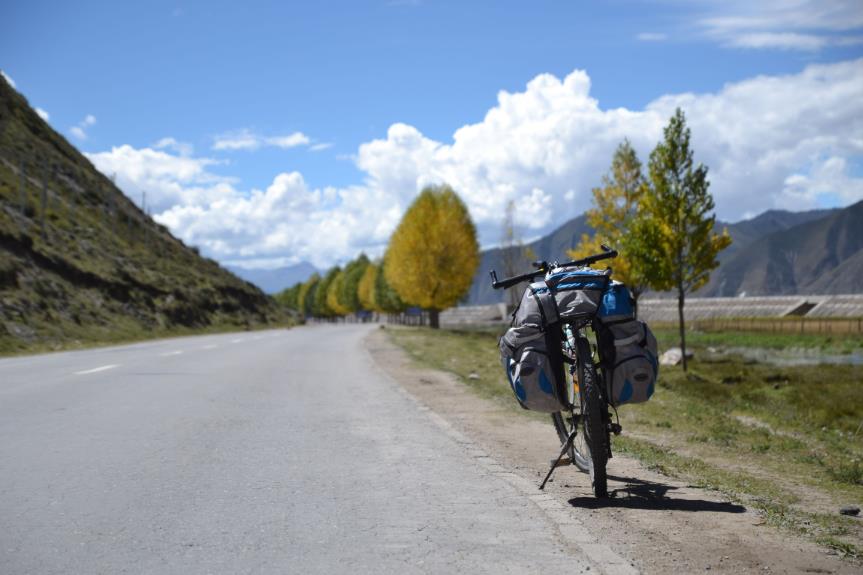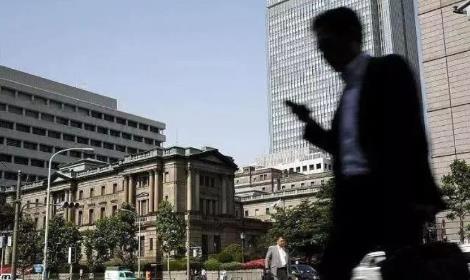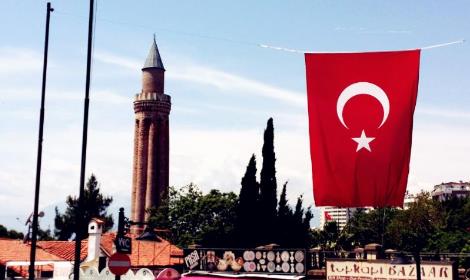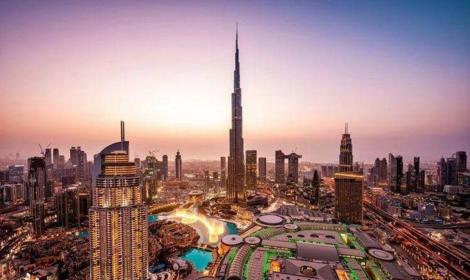为什么有些国家希望穷游人士远离这些国家?(一)
正文翻译

Why do some countries want budget travelers to stay away?
为什么有些国家希望穷游人士远离这些国家?

Why do some countries want budget travelers to stay away?
为什么有些国家希望穷游人士远离这些国家?
评论翻译
Matthew Gordon
In response to some of the other answers here, Canadian businesses are absolutely fine with budget travelers. There are tons of hostels here, tons of AirBnBs, and occasionally you can find temporarily converted university dorms. The federal government doesn’t so much actively encourage budget travelers as much as it doesn’t stop them, and why should it?
Once you’re on foreign soil, unless you have a kitchenette, you’re virtually forced to eat out.
Once you’re on foreign soil, unless you’re a remote worker, you have way too much free time.
What do people with no kitchen and way too much free time do? Spend money, of course!
我回应一下其他答案,加拿大企业对穷游人士绝对没有意见。这里有很多旅馆,爱彼迎(AirBnB)提供很多短租公寓,偶尔你还能找到临时改建的大学宿舍。联邦政府并没有积极鼓励穷游者,也没有阻止他们,为什么要这么做呢?
一旦你在国外,除非你有厨房,否则你实际上是被迫在外面吃饭的。
一旦你在国外,除非你是远程工作者,否则你会有太多的空闲时间。
没有厨房和拥有太多空闲时间的人会做什么?当然要花钱!
Let’s use Toronto as an example. Tourists here:
Have no use for discounted monthly transit passes, so they pay full freight,
Have no use for annual museum or art gallery passes, so they pay full freight,
Shop at local stores,
at restaurants,
Pay sales taxes,
Pay hotel taxes,
This applies even to budget travelers. Think you’re being thrifty by spending $20 at Thai Noodle (would recommend) rather than $200 at Blue Bloods? OK, thanks, you’re still supporting a business here more than the average local who’s eating a packed lunch at work.
让我们以多伦多为例,这里的游客:
无法使用有折扣的月度通行费,所以他们全额支付交通费,
无法购买博物馆或美术馆的年卡,所以他们全额支付,
在当地商店购物,
在餐馆吃饭
缴纳销售税
支付酒店税
这甚至适用于穷游人士。你觉得在泰式面馆(推荐)花20美元而不是在Blue Blood扒房花200美元很节俭吗?好吧,谢谢,你仍然比在工作中吃盒饭的当地普通人更支持这里的企业。
Brian Collins
Most people living in any country want budget travelers to stay away. The main reason why is that budget travellers are likely to be either:
Young, loud, and extremely energetic
Uneducated and inconsiderate
The places where people want budget travellers are so poor that even budget travellers are wealthy, in which case they aren’t really “budget” compared to the locals. Even in those places, locals get fed up with young, uneducated, and inconsiderate people.
An extreme example is the Netherlands, which is both wealthy and, before COVID, was a magnet for young, loud, and extremely energetic (read—horny) men.
生活在任何国家的大多数人都希望穷游者远离他们。主要原因是穷游者可能是:
年轻、吵闹、精力充沛
未受过教育且不体贴他人
人们想要穷游者的地方非常贫穷,(相对于他们)即使是穷游者也很富有,在这种情况下,与当地人相比,他们并不是真正的“穷”。即使在那些地方,当地人受够了年轻人、没受过教育的人和不体谅别人的人。
一个极端的例子是荷兰,它既富有,又在新冠疫情之前吸引了年轻、吵闹、精力充沛的男性。
Prostitution is legal and regulated in the Netherlands, and so many tens of thousands of people are involved in the sex industry that it is cheap. Without pimps skimming off the top, it’s dirt cheap. 30 minutes with a hooker in costs €50, sometimes as low as €30. An hour costs €100. If you think about it, this makes some sense—close to €100 an hour is still quite a high salary.
Young guys on a budget would fly there from the US, UK, Canada, etc, and have cheap sex. However, the fun doesn’t stop there.
So many young horny foreign men wandering the streets would also unzip their fly and take a piss just anywhere. It became an epidemic. The Dutch government ended up installing public urinals OUTDOORS for these budget travellers to use.
There are some benefits (pun intended) besides fattening prostitutes’ wallets. The government then started harvesting the nitrogen from these young horny men, and putting it in fertilizer used in Dutch crops, so everyone who eats Dutch food is also indirectly consuming the piss of these budget travellers—alas, the circle of life!
But all of the positives aside, do you think locals like scenes like this?
Once COVID broke out, the Netherlands imposed border restrictions, and tons of prostitutes became unemployed. People living in Amsterdam suddenly got a breath of non-piss-smelling air for the first time in years. Tourism hasn’t recovered, and the sex industry has become smaller. Lots of locals are happy about that.
卖淫在荷兰是合法和受监管的,成千上万的人参与色情行业,价格低廉。数以万计的人从事性产业,没有皮条客抽成,所以它很便宜。与妓女相处30分钟的费用为50欧元,有时低至30欧元。一小时花费100欧元。如果你仔细想想,这是有道理的——每小时接近100欧元仍然是一个相当高的工资。
有预算的年轻人会从美国、英国、加拿大等地飞到那里,享受廉价的性爱。然而,乐趣并不止于此。
许多在街上游荡的外国年轻男子也会打开拉链,随地小便,这变成了一种流行做法。荷兰政府最终在户外安装了公共小便器,供这些穷游者使用。
除了增加妓女的收入之外,还有一些好处(双关语)。于是,政府开始从这些好色的年轻人身上收集氮源,并将其用作荷兰作物的肥料,所以每个吃荷兰菜的人也间接地消耗了这些穷游者的尿——唉,生生不息!
但抛开所有积极因素不谈,你认为当地人喜欢这样的场景吗?
新冠疫情爆发后,荷兰实施了边境限制,大量妓女失业。住在阿姆斯特丹的人们几年来第一次突然呼吸到了一股没有尿味的空气。旅游业还没有复苏,性产业规模也变得越来越小,许多当地人对此感到高兴。
Gerard Wall
Back in the 1990’s there was much public debate in my home town of Galway, Ireland about dissuading young backpackers from visiting. Galway is a massive tourist destination, accommodation is often very hard to come by and can be very expensive. At the moment the Galway International Arts festival is taking place and during the horse racing festival, hotels are completely booked out. Of course the argument was the the city should be attracting a better quality of tourist who would have more money to spend than young people on a budget.
However, it was pointed out at the time, quite reasonably in my view that if these young backpackers on a budget are made to feel welcome and enjoy themselves then in years, maybe to decades to come when they have more disposable income then they will return with their young families. I see evidence of this every summer and I myself have returned to cites which I visited as a young backpacker.
早在20世纪90年代,在我的家乡爱尔兰戈尔韦,就有很多关于劝阻年轻背包客来访的公开辩论。戈尔韦是一个大型旅游目的地,往往很难找到住宿的地方,而且可能非常昂贵。目前,戈尔韦国际艺术节正在举行,赛马节期间,酒店已被预订一空。当然,争论的焦点是,这座城市应该吸引更高质量的游客,他们在预算上会比年轻人花更多的钱。
然而,当时有人指出,在我看来,如果这些有预算的年轻背包客感到受欢迎并享受生活,那么在未来几年,也许几十年,当他们有更多的可支配收入时,他们会带着年轻的家人再回来。我每年夏天都会看到这样的场景,我自己也曾回到年轻时作为背包客一族去过的城市。
Traveler's Worldng
Some countries may prefer to discourage or limit budget travelers for various reasons, which can include:
1. Economic Impact: Budget travelers often spend less money on accommodation, dining, and activities compared to higher-spending tourists. While budget travelers can still contribute to the local economy, their lower spending might not have as significant an impact on tourism revenue as higher-end travelers.
2. Overcrowding: Some popular tourist destinations may already be dealing with issues of overtourism, where the influx of tourists, including budget travelers, strains local infrastructure, resources, and services.
3. Environmental Concerns: High tourist numbers, including budget travelers, can lead to increased waste, pollution, and strain on natural resources, especially in ecologically sensitive areas.
4. Quality of Experience: Some countries prioritize attracting high-value tourists who are willing to spend more on luxury experiences. They may fear that budget travelers could negatively impact the overall perception of their destination and affect the quality of the tourism experience for other visitors.
出于各种原因,一些国家可能更喜欢劝阻或限制经济型旅行者,包括:
1.经济影响:与消费较高的游客相比,经济型游客在住宿、餐饮和活动上的花费通常较少。虽然经济型旅行者仍然可以为当地经济做出贡献,但他们较低的支出可能不会像高端旅行者那样对旅游收入产生重大影响。
2.过度拥挤:一些热门旅游目的地可能已经在处理过度旅游的问题,包括穷游者在内的游客的涌入给当地的基础设施、资源和服务带来了压力。
3.环境问题:包括穷游者在内的大量游客可能会导致浪费、污染和自然资源压力增加,尤其是在生态敏感地区。
4.体验质量:一些国家优先吸引愿意在豪华体验上花费更多的高价值游客。他们可能担心,穷游者可能会对目的地的整体感知产生负面影响,并影响其他游客的旅游体验质量。
5. Socio-cultural Concerns: The behavior of some budget travelers, such as engaging in disrespectful or inappropriate activities, might clash with local customs or cultural norms, leading to tensions with local communities.
6. Preservation of Heritage: Countries with historically significant sites or cultural heritage may want to limit visitor numbers, including budget travelers, to protect and preserve these precious assets.
7. Security and Safety: Some countries might have concerns about the security and safety of budget travelers, especially if they are perceived as being more vulnerable to risks.
8. Focus on High-End Tourism: In pursuit of higher revenue and premium tourism experiences, some countries may choose to focus their marketing efforts on attracting higher-spending travelers.
It's important to note that not all countries discourage budget travelers, and many nations warmly welcome tourists of all budgets. However, destinations facing challenges related to overcrowding, environmental impact, or the desire to emphasize luxury tourism may implement measures to manage and control tourism flow, including encouraging certain types of travelers to explore other destinations. Responsible and sustainable travel practices, regardless of budget, are crucial to ensuring positive and mutually beneficial tourism experiences for both travelers and host communities.
5.社会文化问题:一些穷游者的行为,如有不尊重人或不适当的举动,可能与当地习俗或文化规范相冲突,导致与当地群体的关系变紧张。
6.遗产保护:拥有重要历史遗址或文化遗产的国家可能希望限制游客数量,包括经济型游客,以保护和保存这些珍贵资产。
7.安全保障:一些国家可能会担心穷游者的安全保障,尤其是如果他们被认为更容易受到风险的影响。
8.关注高端旅游:为了追求更高的收入和优质的旅游体验,一些国家可能会选择将营销重点放在吸引更高消费的游客上。
需要注意的是,并非所有国家都不鼓励穷游者,许多国家都热烈欢迎各种穷游者。然而,面临过度拥挤、环境影响或强调豪华旅游的愿望等挑战的目的地可能会采取措施来管理和控制旅游流量,包括鼓励某些类型的旅行者探索其他目的地。无论预算如何,负责任和可持续的旅游实践对于确保旅行者和东道国群体都能获得积极互利的旅游体验至关重要。
Patricia Sabatini
This depends on the “budget” travellers. There are young people who come to Spain on very cheap flights, party in clubs etc. all night, make a huge mess and lots of noise and then fly back home. They hardly spend any money to compensate for all this and give resorts a bad name that keeps those who pay their way at a distance Another kind of budget traveller depends on the kindness and hospitality of local people even in undeveloped countries where folks are much poorer than the traveller. So some countries would prefer this kind of person to stay away.
这取决于旅行者的“预算”。有些年轻人来到西班牙是坐着非常便宜的航班、在俱乐部聚会等等,制造巨大的混乱和噪音,然后飞回家。他们来这一次几乎没有花任何钱,并给度假地带来了糟糕的名声,让那些付钱的人与他们保持距离。另一种穷游者依赖于当地人的友善和好客,即使在那些人们比旅行者穷得多的欠发达国家也是如此。因此,一些国家更希望这种人远离。
Rik
Good question but difficult answer : The fact is that tourism is an economic activity. This implies that sooner or later, there are thinking heads in the capital who will scrutinize the activity of tourism.
At some point there is an analyst doing his/her job. Now depending upon the quality of the analyst you might have very different outcomes.
if the analyst says : “2 rich tourist from USA staying in 4star hotels during 10 days in our country….deliver a revenue of 1000 USD for our country ……WHILE…..one needs 8 backpackers to stay in hostels during 12 days in our country ……to deliver the same revenue of 1000 USD” ===> then some director in the economic department of that country will say : “we have to get rid of those backpackers and focus on rich tourist”
问得好,但很难回答:事实上,旅游是一种经济活动。这意味着,首都迟早会有头脑清醒的人来审视旅游业的活动。
在某个时刻,有某位分析师在做这方面的分析工作。根据分析师的素质,你可能会有非常不同的结果。
如果分析师说:“2名来自美国的富有游客在我国10天内住在四星级酒店……为我国带来1000美元的收入……而某个人在我国12天里都住旅舍,需要8个这样的背包客才能赚到1000美元”;那么该国经济部门的一些主管会说:“我们必须摆脱那些背包客,专注于富有的游客”
Dave Samwell
What countries/cities/places should I stay away from I begin to travel?
When you start travelling stay away from places where the languages you can speak aren't widely spoken.
When visiting new countries and new cultures, one of the best and most exciting things to do is interact with local people. When you start your adventures you want to make this as easy as possible. Having no common language to communicate in makes this 10x harder.
If you speak English, try America, England, Canada, or Australia. All fantastic countries to visit, different cultures and people and you will be able to communicate with them all fluently.
After that, try some places where English may be spoken widely, but isn't a mother tongue. Lots of people speak English in most European countries, India, Thailand, many countries in Africa and so on.
When you are comfortable with half being able to communicate you are ready to try places like Japan and China where English is quite rare, and you cannot communicate verbally.
Non verbal communication is something you will pick up on through your travels. “I want chicken soup” is something you can easily communicate with smiles, hand gestures and pointing at things, but I would imagine even something as simple as this would be intimidating for the inexperienced traveller.
Start with places that speak languages you are fluent in, and slowly get more adventurous.
开始旅行时应该远离哪些国家/城市/地方?
当开始旅行时,要远离那些你能说的语言还没有被广泛使用的地方。
当去到新的国家和新的文化之地时,最好和最令人兴奋的事情之一就是与当地人互动。当你开始冒险之旅时,你想让这一切尽可能简单。没有共同的语言,会使交流变得困难10倍。
如果你会说英语,试试美国、英国、加拿大或澳大利亚。所有奇妙的国家都值得参观,不同的文化和人民,你将能够流利地与他们交流。
在那之后,去一些英语被广泛使用但不是母语的地方试试。在大多数欧洲国家、印度、泰国、非洲等许多国家,很多人说英语。
当你的交流能力差强人意时,你就可以尝试去日本和中国这样的地方,因为那里会说英语的人很少见,你无法用语言交流。
非语言交流方式是你在旅行中会学到的一种沟通方式。“我想要鸡汤”是一种你可以通过微笑、手势和指着某物来轻松交流方式可获得的;但我想,即使是这样简单的事情,对没有经验的旅行者来说,也会很畏惧的。
从去那些你能流利交流的地方开始,慢慢地变得更有冒险精神。
Ken Nosse
What do people consider when they travel to other countries?
First I love to travel, but I do not take it lightly.
I feel I am representing my country, and want to show respect to the place I am visiting.
I find studying my destination helps me achieve this.
I study maps of the surrounding areas to where I am staying. I try to locate grocery stores, restaurants, malls, bars, and of course a place to get alcohol.
I learn about public transportation so I can get around. I trace routes on the Metro, buses, and learn the rates for taxis.
I read as much as I can from blogs, personal reviews, travel sites and web pages, this gives me an understanding of the cultures, customs and what to do or not do. Having a better understanding of the above makes my travels an enlightening experience. It gets me off the tourist routes and lets me experience the people and culture.
I travel prepared for the climate understand the currency and have an Idea of what I want to see and how I am going to carry that out.
I try to fit in with the culture by the way I dress, knowing that no matter where Americans go, the men will be wearing flashy tennis shoes, cargo shorts and a loud floral shirt which I avoid at all costs and have no problem spotting my fellow country men.
人们去其他国家旅行时会考虑什么?
首先我喜欢旅行,但我不会掉以轻心。
我觉得我是在代表我的国家,我想尊重我所访问的地方。
我发现研究我的目的地有助于我实现这一点。
我研究我住的地方周围的地图。我试着找到杂货店、餐馆、商场、酒吧,当然还有一个买酒的地方。
我学习乘坐公共交通,这样我就可以四处走动了。我在地铁、公共汽车上追踪路线,并了解出租车的价格。
我尽可能多地从博客、个人评论、旅游网站和网页上阅读,这让我了解了文化、习俗以及该做什么或不该做什么。更好地了解以上内容使我的旅行成为一次启发性的经历。它让我远离了旅游路线,让我体验了这里的人文和文化。
我旅行时为应对气候变化做好了准备,了解货币,知道我想看什么,以及我将如何实现这一点。
我试着通过自己的穿着方式融入其文化,因为我知道无论美国人去哪里,男士们将穿着华丽的网球鞋、工装短裤和醒目的印花衬衫,我无论如何都不会穿这种衣服,而且一眼就能认出我的同胞们。
Evelyn Holland
Why do people like traveling to foreign countries more than their own country?
I think people enjoy exploring different cultures and environments that exist outside of their home country.
It's part of human nature to want to experience something new to broaden our horizons.
At the same time, many people find that they appreciate their own culture more when they've been exposed to different ones.
There's a greater sense of understanding and appreciation for what's around us when we compare and contrast it to something else.
为什么人们更喜欢去外国旅行而不在自己的国家旅行?
我认为人们喜欢探索他们祖国以外的不同文化和环境。
想要体验新事物来开阔视野是人类本性的一部分。
与此同时,许多人发现,当他们接触到不同的文化时,他们会更欣赏自己的文化。
当我们将周围的事物与其他事物进行比较和对比时,我们会更好的理解和欣赏周围的事物。
Mark Mostow
Why do some people only want to travel to rich countries?
My wife and I greatly enjoyed our visit to Belize and Guatemala, which are poor countries. The jungle and antiquities were amazing, and we met nice people. But we were too terrified to travel on the public intercity bus, which was like an American school bus but crowded to over double capacity. In an accident, people wouid have died in the crush. The locals have no choice and are used to it. But we stretched our budget and hired a private taxi. People who want to avoid such problems might prefer to travel to rich countries.
为什么有些人只想去富裕国家旅游?
我和妻子非常喜欢我们访问伯利兹和危地马拉这两个贫穷国家。丛林和古物令人惊叹,我们遇到了好人。但我们当时非常害怕,不敢乘坐公共城际巴士,它就像美国的校车,但载客人数超过了两倍以上。如果发生事故,人们会在拥挤中丧生。当地人别无选择,已经习惯了。但我们只得超支租一辆私人出租车。想要避免这些问题的人可能更喜欢去富裕国家旅行。
Jonathan Buttall
What is the safest country to visit right now in the world?
Many Americans believe that the world is not a safe place due to media reports of terrorism and the like.
First, the best Answer could be any of the following; Japan (which is often number one on such lists), Switzerland, Singapore, Australia or Norway. There are many others, but I just wrote the safest places I’ve actually been to.
While we’ve been to the above places, we’ve also traveled to North Africa, other East Asian Countries, five countries in the Middle East and many countries in Latin America. While we did have a close call once in Egypt and once in Morocco, nothing bad happened there or in any of those other places. Much of the world is safer than most Americans think, and sadly, we see less and less Americans in other countries then we used to.
现在世界上最安全的国家是哪个?
许多美国人认为,由于媒体对恐怖主义等的报道,世界没有一个安全的地方。
首先,最好的答案可以是以下任何一个;日本(通常在这类名单上排名第一)、瑞士、新加坡、澳大利亚或挪威。还有很多其他地方,但我只是写了我实际去过的最安全的地方。
在我们去过上述地方的同时,我们还去过北非、其他东亚国家、中东五国和拉丁美洲的许多国家。虽然我们在埃及和摩洛哥都有过一次险象环生的经历,但那里或其他任何地方都没有遭遇任何糟糕的事情。世界上大部分地区比大多数美国人想象的更安全,可悲的是,我们在其他国家看到的美国人比过去越来越少。
Buddy Zahn
What is the cheapest way to travel around the world?
Find the cheapest city in the areas to fly into. If you’re flying to Europe, fly to Lisbon, Dublin, Copenhagen, or Istanbul. Then fly to your final destination. Every region of the world has cheaper location to fly into. It’s cheaper to fly into Seoul than Tokyo for instance. Or Bangkok or Singapore instead of Sydney. Plus, you get to visit more than one country this way.
Also, hostels. They are cheap and a good way to meet people.
I’ve done as many as 15 countries on one trip and spent under 3,000 dollars. Last year, I went to Peru, Ecuador, and Mexico for 2 weeks and spent around 1,500 dollars including airfare.
环游世界最便宜的方式是什么?
在这些地区找到最便宜的城市。如果你要飞往欧洲,可以飞往里斯本、都柏林、哥本哈根或伊斯坦布尔。然后飞往你的最终目的地。世界上每个地区都有更便宜的飞行地点。例如,飞往首尔比飞往东京便宜。或者曼谷或新加坡,而不是飞悉尼。另外,你可以通过这种方式访问不止一个国家。
还有旅馆,它们要很便宜,这也是结识朋友的好方法。
我一次旅行去过多达15个国家,花费不到3000美元。去年,我在两周时间里去了秘鲁、厄瓜多尔和墨西哥,花了大约1500美元,包括机票。
In response to some of the other answers here, Canadian businesses are absolutely fine with budget travelers. There are tons of hostels here, tons of AirBnBs, and occasionally you can find temporarily converted university dorms. The federal government doesn’t so much actively encourage budget travelers as much as it doesn’t stop them, and why should it?
Once you’re on foreign soil, unless you have a kitchenette, you’re virtually forced to eat out.
Once you’re on foreign soil, unless you’re a remote worker, you have way too much free time.
What do people with no kitchen and way too much free time do? Spend money, of course!
我回应一下其他答案,加拿大企业对穷游人士绝对没有意见。这里有很多旅馆,爱彼迎(AirBnB)提供很多短租公寓,偶尔你还能找到临时改建的大学宿舍。联邦政府并没有积极鼓励穷游者,也没有阻止他们,为什么要这么做呢?
一旦你在国外,除非你有厨房,否则你实际上是被迫在外面吃饭的。
一旦你在国外,除非你是远程工作者,否则你会有太多的空闲时间。
没有厨房和拥有太多空闲时间的人会做什么?当然要花钱!
Let’s use Toronto as an example. Tourists here:
Have no use for discounted monthly transit passes, so they pay full freight,
Have no use for annual museum or art gallery passes, so they pay full freight,
Shop at local stores,
at restaurants,
Pay sales taxes,
Pay hotel taxes,
This applies even to budget travelers. Think you’re being thrifty by spending $20 at Thai Noodle (would recommend) rather than $200 at Blue Bloods? OK, thanks, you’re still supporting a business here more than the average local who’s eating a packed lunch at work.
让我们以多伦多为例,这里的游客:
无法使用有折扣的月度通行费,所以他们全额支付交通费,
无法购买博物馆或美术馆的年卡,所以他们全额支付,
在当地商店购物,
在餐馆吃饭
缴纳销售税
支付酒店税
这甚至适用于穷游人士。你觉得在泰式面馆(推荐)花20美元而不是在Blue Blood扒房花200美元很节俭吗?好吧,谢谢,你仍然比在工作中吃盒饭的当地普通人更支持这里的企业。
Brian Collins
Most people living in any country want budget travelers to stay away. The main reason why is that budget travellers are likely to be either:
Young, loud, and extremely energetic
Uneducated and inconsiderate
The places where people want budget travellers are so poor that even budget travellers are wealthy, in which case they aren’t really “budget” compared to the locals. Even in those places, locals get fed up with young, uneducated, and inconsiderate people.
An extreme example is the Netherlands, which is both wealthy and, before COVID, was a magnet for young, loud, and extremely energetic (read—horny) men.
生活在任何国家的大多数人都希望穷游者远离他们。主要原因是穷游者可能是:
年轻、吵闹、精力充沛
未受过教育且不体贴他人
人们想要穷游者的地方非常贫穷,(相对于他们)即使是穷游者也很富有,在这种情况下,与当地人相比,他们并不是真正的“穷”。即使在那些地方,当地人受够了年轻人、没受过教育的人和不体谅别人的人。
一个极端的例子是荷兰,它既富有,又在新冠疫情之前吸引了年轻、吵闹、精力充沛的男性。
Prostitution is legal and regulated in the Netherlands, and so many tens of thousands of people are involved in the sex industry that it is cheap. Without pimps skimming off the top, it’s dirt cheap. 30 minutes with a hooker in costs €50, sometimes as low as €30. An hour costs €100. If you think about it, this makes some sense—close to €100 an hour is still quite a high salary.
Young guys on a budget would fly there from the US, UK, Canada, etc, and have cheap sex. However, the fun doesn’t stop there.
So many young horny foreign men wandering the streets would also unzip their fly and take a piss just anywhere. It became an epidemic. The Dutch government ended up installing public urinals OUTDOORS for these budget travellers to use.
There are some benefits (pun intended) besides fattening prostitutes’ wallets. The government then started harvesting the nitrogen from these young horny men, and putting it in fertilizer used in Dutch crops, so everyone who eats Dutch food is also indirectly consuming the piss of these budget travellers—alas, the circle of life!
But all of the positives aside, do you think locals like scenes like this?
Once COVID broke out, the Netherlands imposed border restrictions, and tons of prostitutes became unemployed. People living in Amsterdam suddenly got a breath of non-piss-smelling air for the first time in years. Tourism hasn’t recovered, and the sex industry has become smaller. Lots of locals are happy about that.
卖淫在荷兰是合法和受监管的,成千上万的人参与色情行业,价格低廉。数以万计的人从事性产业,没有皮条客抽成,所以它很便宜。与妓女相处30分钟的费用为50欧元,有时低至30欧元。一小时花费100欧元。如果你仔细想想,这是有道理的——每小时接近100欧元仍然是一个相当高的工资。
有预算的年轻人会从美国、英国、加拿大等地飞到那里,享受廉价的性爱。然而,乐趣并不止于此。
许多在街上游荡的外国年轻男子也会打开拉链,随地小便,这变成了一种流行做法。荷兰政府最终在户外安装了公共小便器,供这些穷游者使用。
除了增加妓女的收入之外,还有一些好处(双关语)。于是,政府开始从这些好色的年轻人身上收集氮源,并将其用作荷兰作物的肥料,所以每个吃荷兰菜的人也间接地消耗了这些穷游者的尿——唉,生生不息!
但抛开所有积极因素不谈,你认为当地人喜欢这样的场景吗?
新冠疫情爆发后,荷兰实施了边境限制,大量妓女失业。住在阿姆斯特丹的人们几年来第一次突然呼吸到了一股没有尿味的空气。旅游业还没有复苏,性产业规模也变得越来越小,许多当地人对此感到高兴。
Gerard Wall
Back in the 1990’s there was much public debate in my home town of Galway, Ireland about dissuading young backpackers from visiting. Galway is a massive tourist destination, accommodation is often very hard to come by and can be very expensive. At the moment the Galway International Arts festival is taking place and during the horse racing festival, hotels are completely booked out. Of course the argument was the the city should be attracting a better quality of tourist who would have more money to spend than young people on a budget.
However, it was pointed out at the time, quite reasonably in my view that if these young backpackers on a budget are made to feel welcome and enjoy themselves then in years, maybe to decades to come when they have more disposable income then they will return with their young families. I see evidence of this every summer and I myself have returned to cites which I visited as a young backpacker.
早在20世纪90年代,在我的家乡爱尔兰戈尔韦,就有很多关于劝阻年轻背包客来访的公开辩论。戈尔韦是一个大型旅游目的地,往往很难找到住宿的地方,而且可能非常昂贵。目前,戈尔韦国际艺术节正在举行,赛马节期间,酒店已被预订一空。当然,争论的焦点是,这座城市应该吸引更高质量的游客,他们在预算上会比年轻人花更多的钱。
然而,当时有人指出,在我看来,如果这些有预算的年轻背包客感到受欢迎并享受生活,那么在未来几年,也许几十年,当他们有更多的可支配收入时,他们会带着年轻的家人再回来。我每年夏天都会看到这样的场景,我自己也曾回到年轻时作为背包客一族去过的城市。
Traveler's Worldng
Some countries may prefer to discourage or limit budget travelers for various reasons, which can include:
1. Economic Impact: Budget travelers often spend less money on accommodation, dining, and activities compared to higher-spending tourists. While budget travelers can still contribute to the local economy, their lower spending might not have as significant an impact on tourism revenue as higher-end travelers.
2. Overcrowding: Some popular tourist destinations may already be dealing with issues of overtourism, where the influx of tourists, including budget travelers, strains local infrastructure, resources, and services.
3. Environmental Concerns: High tourist numbers, including budget travelers, can lead to increased waste, pollution, and strain on natural resources, especially in ecologically sensitive areas.
4. Quality of Experience: Some countries prioritize attracting high-value tourists who are willing to spend more on luxury experiences. They may fear that budget travelers could negatively impact the overall perception of their destination and affect the quality of the tourism experience for other visitors.
出于各种原因,一些国家可能更喜欢劝阻或限制经济型旅行者,包括:
1.经济影响:与消费较高的游客相比,经济型游客在住宿、餐饮和活动上的花费通常较少。虽然经济型旅行者仍然可以为当地经济做出贡献,但他们较低的支出可能不会像高端旅行者那样对旅游收入产生重大影响。
2.过度拥挤:一些热门旅游目的地可能已经在处理过度旅游的问题,包括穷游者在内的游客的涌入给当地的基础设施、资源和服务带来了压力。
3.环境问题:包括穷游者在内的大量游客可能会导致浪费、污染和自然资源压力增加,尤其是在生态敏感地区。
4.体验质量:一些国家优先吸引愿意在豪华体验上花费更多的高价值游客。他们可能担心,穷游者可能会对目的地的整体感知产生负面影响,并影响其他游客的旅游体验质量。
5. Socio-cultural Concerns: The behavior of some budget travelers, such as engaging in disrespectful or inappropriate activities, might clash with local customs or cultural norms, leading to tensions with local communities.
6. Preservation of Heritage: Countries with historically significant sites or cultural heritage may want to limit visitor numbers, including budget travelers, to protect and preserve these precious assets.
7. Security and Safety: Some countries might have concerns about the security and safety of budget travelers, especially if they are perceived as being more vulnerable to risks.
8. Focus on High-End Tourism: In pursuit of higher revenue and premium tourism experiences, some countries may choose to focus their marketing efforts on attracting higher-spending travelers.
It's important to note that not all countries discourage budget travelers, and many nations warmly welcome tourists of all budgets. However, destinations facing challenges related to overcrowding, environmental impact, or the desire to emphasize luxury tourism may implement measures to manage and control tourism flow, including encouraging certain types of travelers to explore other destinations. Responsible and sustainable travel practices, regardless of budget, are crucial to ensuring positive and mutually beneficial tourism experiences for both travelers and host communities.
5.社会文化问题:一些穷游者的行为,如有不尊重人或不适当的举动,可能与当地习俗或文化规范相冲突,导致与当地群体的关系变紧张。
6.遗产保护:拥有重要历史遗址或文化遗产的国家可能希望限制游客数量,包括经济型游客,以保护和保存这些珍贵资产。
7.安全保障:一些国家可能会担心穷游者的安全保障,尤其是如果他们被认为更容易受到风险的影响。
8.关注高端旅游:为了追求更高的收入和优质的旅游体验,一些国家可能会选择将营销重点放在吸引更高消费的游客上。
需要注意的是,并非所有国家都不鼓励穷游者,许多国家都热烈欢迎各种穷游者。然而,面临过度拥挤、环境影响或强调豪华旅游的愿望等挑战的目的地可能会采取措施来管理和控制旅游流量,包括鼓励某些类型的旅行者探索其他目的地。无论预算如何,负责任和可持续的旅游实践对于确保旅行者和东道国群体都能获得积极互利的旅游体验至关重要。
Patricia Sabatini
This depends on the “budget” travellers. There are young people who come to Spain on very cheap flights, party in clubs etc. all night, make a huge mess and lots of noise and then fly back home. They hardly spend any money to compensate for all this and give resorts a bad name that keeps those who pay their way at a distance Another kind of budget traveller depends on the kindness and hospitality of local people even in undeveloped countries where folks are much poorer than the traveller. So some countries would prefer this kind of person to stay away.
这取决于旅行者的“预算”。有些年轻人来到西班牙是坐着非常便宜的航班、在俱乐部聚会等等,制造巨大的混乱和噪音,然后飞回家。他们来这一次几乎没有花任何钱,并给度假地带来了糟糕的名声,让那些付钱的人与他们保持距离。另一种穷游者依赖于当地人的友善和好客,即使在那些人们比旅行者穷得多的欠发达国家也是如此。因此,一些国家更希望这种人远离。
Rik
Good question but difficult answer : The fact is that tourism is an economic activity. This implies that sooner or later, there are thinking heads in the capital who will scrutinize the activity of tourism.
At some point there is an analyst doing his/her job. Now depending upon the quality of the analyst you might have very different outcomes.
if the analyst says : “2 rich tourist from USA staying in 4star hotels during 10 days in our country….deliver a revenue of 1000 USD for our country ……WHILE…..one needs 8 backpackers to stay in hostels during 12 days in our country ……to deliver the same revenue of 1000 USD” ===> then some director in the economic department of that country will say : “we have to get rid of those backpackers and focus on rich tourist”
问得好,但很难回答:事实上,旅游是一种经济活动。这意味着,首都迟早会有头脑清醒的人来审视旅游业的活动。
在某个时刻,有某位分析师在做这方面的分析工作。根据分析师的素质,你可能会有非常不同的结果。
如果分析师说:“2名来自美国的富有游客在我国10天内住在四星级酒店……为我国带来1000美元的收入……而某个人在我国12天里都住旅舍,需要8个这样的背包客才能赚到1000美元”;那么该国经济部门的一些主管会说:“我们必须摆脱那些背包客,专注于富有的游客”
Dave Samwell
What countries/cities/places should I stay away from I begin to travel?
When you start travelling stay away from places where the languages you can speak aren't widely spoken.
When visiting new countries and new cultures, one of the best and most exciting things to do is interact with local people. When you start your adventures you want to make this as easy as possible. Having no common language to communicate in makes this 10x harder.
If you speak English, try America, England, Canada, or Australia. All fantastic countries to visit, different cultures and people and you will be able to communicate with them all fluently.
After that, try some places where English may be spoken widely, but isn't a mother tongue. Lots of people speak English in most European countries, India, Thailand, many countries in Africa and so on.
When you are comfortable with half being able to communicate you are ready to try places like Japan and China where English is quite rare, and you cannot communicate verbally.
Non verbal communication is something you will pick up on through your travels. “I want chicken soup” is something you can easily communicate with smiles, hand gestures and pointing at things, but I would imagine even something as simple as this would be intimidating for the inexperienced traveller.
Start with places that speak languages you are fluent in, and slowly get more adventurous.
开始旅行时应该远离哪些国家/城市/地方?
当开始旅行时,要远离那些你能说的语言还没有被广泛使用的地方。
当去到新的国家和新的文化之地时,最好和最令人兴奋的事情之一就是与当地人互动。当你开始冒险之旅时,你想让这一切尽可能简单。没有共同的语言,会使交流变得困难10倍。
如果你会说英语,试试美国、英国、加拿大或澳大利亚。所有奇妙的国家都值得参观,不同的文化和人民,你将能够流利地与他们交流。
在那之后,去一些英语被广泛使用但不是母语的地方试试。在大多数欧洲国家、印度、泰国、非洲等许多国家,很多人说英语。
当你的交流能力差强人意时,你就可以尝试去日本和中国这样的地方,因为那里会说英语的人很少见,你无法用语言交流。
非语言交流方式是你在旅行中会学到的一种沟通方式。“我想要鸡汤”是一种你可以通过微笑、手势和指着某物来轻松交流方式可获得的;但我想,即使是这样简单的事情,对没有经验的旅行者来说,也会很畏惧的。
从去那些你能流利交流的地方开始,慢慢地变得更有冒险精神。
Ken Nosse
What do people consider when they travel to other countries?
First I love to travel, but I do not take it lightly.
I feel I am representing my country, and want to show respect to the place I am visiting.
I find studying my destination helps me achieve this.
I study maps of the surrounding areas to where I am staying. I try to locate grocery stores, restaurants, malls, bars, and of course a place to get alcohol.
I learn about public transportation so I can get around. I trace routes on the Metro, buses, and learn the rates for taxis.
I read as much as I can from blogs, personal reviews, travel sites and web pages, this gives me an understanding of the cultures, customs and what to do or not do. Having a better understanding of the above makes my travels an enlightening experience. It gets me off the tourist routes and lets me experience the people and culture.
I travel prepared for the climate understand the currency and have an Idea of what I want to see and how I am going to carry that out.
I try to fit in with the culture by the way I dress, knowing that no matter where Americans go, the men will be wearing flashy tennis shoes, cargo shorts and a loud floral shirt which I avoid at all costs and have no problem spotting my fellow country men.
人们去其他国家旅行时会考虑什么?
首先我喜欢旅行,但我不会掉以轻心。
我觉得我是在代表我的国家,我想尊重我所访问的地方。
我发现研究我的目的地有助于我实现这一点。
我研究我住的地方周围的地图。我试着找到杂货店、餐馆、商场、酒吧,当然还有一个买酒的地方。
我学习乘坐公共交通,这样我就可以四处走动了。我在地铁、公共汽车上追踪路线,并了解出租车的价格。
我尽可能多地从博客、个人评论、旅游网站和网页上阅读,这让我了解了文化、习俗以及该做什么或不该做什么。更好地了解以上内容使我的旅行成为一次启发性的经历。它让我远离了旅游路线,让我体验了这里的人文和文化。
我旅行时为应对气候变化做好了准备,了解货币,知道我想看什么,以及我将如何实现这一点。
我试着通过自己的穿着方式融入其文化,因为我知道无论美国人去哪里,男士们将穿着华丽的网球鞋、工装短裤和醒目的印花衬衫,我无论如何都不会穿这种衣服,而且一眼就能认出我的同胞们。
Evelyn Holland
Why do people like traveling to foreign countries more than their own country?
I think people enjoy exploring different cultures and environments that exist outside of their home country.
It's part of human nature to want to experience something new to broaden our horizons.
At the same time, many people find that they appreciate their own culture more when they've been exposed to different ones.
There's a greater sense of understanding and appreciation for what's around us when we compare and contrast it to something else.
为什么人们更喜欢去外国旅行而不在自己的国家旅行?
我认为人们喜欢探索他们祖国以外的不同文化和环境。
想要体验新事物来开阔视野是人类本性的一部分。
与此同时,许多人发现,当他们接触到不同的文化时,他们会更欣赏自己的文化。
当我们将周围的事物与其他事物进行比较和对比时,我们会更好的理解和欣赏周围的事物。
Mark Mostow
Why do some people only want to travel to rich countries?
My wife and I greatly enjoyed our visit to Belize and Guatemala, which are poor countries. The jungle and antiquities were amazing, and we met nice people. But we were too terrified to travel on the public intercity bus, which was like an American school bus but crowded to over double capacity. In an accident, people wouid have died in the crush. The locals have no choice and are used to it. But we stretched our budget and hired a private taxi. People who want to avoid such problems might prefer to travel to rich countries.
为什么有些人只想去富裕国家旅游?
我和妻子非常喜欢我们访问伯利兹和危地马拉这两个贫穷国家。丛林和古物令人惊叹,我们遇到了好人。但我们当时非常害怕,不敢乘坐公共城际巴士,它就像美国的校车,但载客人数超过了两倍以上。如果发生事故,人们会在拥挤中丧生。当地人别无选择,已经习惯了。但我们只得超支租一辆私人出租车。想要避免这些问题的人可能更喜欢去富裕国家旅行。
Jonathan Buttall
What is the safest country to visit right now in the world?
Many Americans believe that the world is not a safe place due to media reports of terrorism and the like.
First, the best Answer could be any of the following; Japan (which is often number one on such lists), Switzerland, Singapore, Australia or Norway. There are many others, but I just wrote the safest places I’ve actually been to.
While we’ve been to the above places, we’ve also traveled to North Africa, other East Asian Countries, five countries in the Middle East and many countries in Latin America. While we did have a close call once in Egypt and once in Morocco, nothing bad happened there or in any of those other places. Much of the world is safer than most Americans think, and sadly, we see less and less Americans in other countries then we used to.
现在世界上最安全的国家是哪个?
许多美国人认为,由于媒体对恐怖主义等的报道,世界没有一个安全的地方。
首先,最好的答案可以是以下任何一个;日本(通常在这类名单上排名第一)、瑞士、新加坡、澳大利亚或挪威。还有很多其他地方,但我只是写了我实际去过的最安全的地方。
在我们去过上述地方的同时,我们还去过北非、其他东亚国家、中东五国和拉丁美洲的许多国家。虽然我们在埃及和摩洛哥都有过一次险象环生的经历,但那里或其他任何地方都没有遭遇任何糟糕的事情。世界上大部分地区比大多数美国人想象的更安全,可悲的是,我们在其他国家看到的美国人比过去越来越少。
Buddy Zahn
What is the cheapest way to travel around the world?
Find the cheapest city in the areas to fly into. If you’re flying to Europe, fly to Lisbon, Dublin, Copenhagen, or Istanbul. Then fly to your final destination. Every region of the world has cheaper location to fly into. It’s cheaper to fly into Seoul than Tokyo for instance. Or Bangkok or Singapore instead of Sydney. Plus, you get to visit more than one country this way.
Also, hostels. They are cheap and a good way to meet people.
I’ve done as many as 15 countries on one trip and spent under 3,000 dollars. Last year, I went to Peru, Ecuador, and Mexico for 2 weeks and spent around 1,500 dollars including airfare.
环游世界最便宜的方式是什么?
在这些地区找到最便宜的城市。如果你要飞往欧洲,可以飞往里斯本、都柏林、哥本哈根或伊斯坦布尔。然后飞往你的最终目的地。世界上每个地区都有更便宜的飞行地点。例如,飞往首尔比飞往东京便宜。或者曼谷或新加坡,而不是飞悉尼。另外,你可以通过这种方式访问不止一个国家。
还有旅馆,它们要很便宜,这也是结识朋友的好方法。
我一次旅行去过多达15个国家,花费不到3000美元。去年,我在两周时间里去了秘鲁、厄瓜多尔和墨西哥,花了大约1500美元,包括机票。











